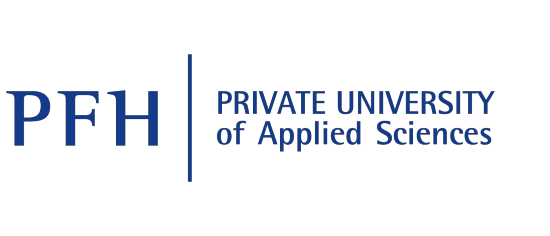
Masters in Computer Science in Germany
Computer science is a field in high demand worldwide. With advancements in AI and data technologies, this domain has become a gateway to innovation, reshaping industries and redefining how we live and work. For aspiring students, it offers immense opportunities for growth and success. Germany stands out as a premier destination for higher education in this field due to its reputation for technological advancements and academic excellence. If you’re considering a master’s in computer science, Germany should top your list.
This article explores key aspects of pursuing a master’s in computer science in Germany, including costs, career prospects, and the standout features of PFH Private University of Applied Sciences.
Why Study Master’s in Computer Science in Germany?
Germany offers more than just academic opportunities—it provides a dynamic environment for personal and professional growth. Universities craft their curricula to meet industry demands, with professors often engaged in cutting-edge research and industrial collaborations. Here are some compelling reasons to choose Germany for a master’s in computer science:
- Booming Job Market: According to Bitkom’s 2022 report, Germany had approximately 137,000 vacant IT jobs, reflecting the growing demand for skilled IT professionals.
- Tech Powerhouse of Europe: Germany’s position as Europe’s economic and technological leader is reinforced by companies like SAP, Siemens, Bosch, Deutsche Telekom, and BMW.
- Focus on AI and Data Science: The German government’s Digital Strategy 2025 aims to drive digital transformation, creating research opportunities and jobs for graduates.
- World-Class Education: Germany is home to innovative computer science programs.
- Vibrant Industry Connections: A strong economy with numerous tech companies and startups ensures opportunities for internships, networking, and employment.
- Global Recognition: A computer science degree from Germany is highly valued worldwide, boosting career prospects both locally and globally.
PFH Private University of Applied Sciences
Among Germany’s educational institutions, PFH Private University of Applied Sciences stands out for its innovative approach to computer science education. Located in Göttingen, PFH offers a unique Computer Science for Business program. This multidisciplinary course integrates technical expertise with management skills, preparing students for leadership roles in tech-driven industries.
Key Features of PFH:
- 100% Job Assurance: PFH provides strong career support, ensuring job placement for its graduates.
- Scholarships up to 25%: Financial assistance is available to help students manage tuition costs effectively.
- GL Language Taught with Program: German language is included as an extra subject in the module to boost integration and job opportunities in Germany.
- Industry-Oriented Curriculum: PFH’s programs bridge technical and managerial aspects, aligning education with real-world demands.
- Focus on Leadership: The curriculum equips students to take on executive roles in IT and related fields.
- Global Exposure: With small class sizes and personalized attention, students benefit from international perspectives and networking opportunities.
- Career Opportunities: Graduates are well-positioned for careers in software development, IT consulting, data science, network security, and entrepreneurship.
Scope of a Master’s in Computer Science in Germany
A master’s in computer science equips students with advanced technical knowledge and opens doors to various career paths:
- Software Development: Designing and implementing innovative software solutions.
- Data Science and Analytics: Solving complex problems using large datasets and predictive models.
- Network Security: Safeguarding systems and maintaining global security standards.
- IT Consulting: Optimizing technology use and addressing operational challenges.
- Entrepreneurship: Launching tech startups in AI, software platforms, or innovative applications.
Germany’s robust economy and demand for tech professionals ensure excellent career prospects for graduates.
Cost of a Master’s in Computer Science in Germany
Germany’s affordability is a key factor attracting international students. Here’s a breakdown of typical costs:
- Tuition Fees: Private universities, like PFH, have tuition fees but offer value-added programs and facilities.
- Living Expenses: International students need around €850–€1,200 per month for accommodation, food, transportation, and health insurance.
- Scholarships: Scholarships such as DAAD (Deutscher Akademischer Austauschdienst) and university-specific grants help reduce financial burdens.
Conclusion
Pursuing a master’s in computer science in Germany combines academic excellence with practical exposure. Universities like PFH Private University of Applied Sciences provide an edge by focusing on multidisciplinary education and leadership skills. A degree from Germany not only enhances career prospects but also offers international exposure and personal growth.
Frequently Asked Questions
Most master’s programs are available in English. However, basic German proficiency can be helpful for daily life and internships.
Typically, it takes two years (four semesters) to complete, including thesis work.
Yes, international students can work up to 20 hours per week during semesters and full-time during breaks.
A bachelor’s degree in a related field, at least 1 year of professional work experience, proof of language proficiency (English), a statement of purpose (SOP), and letters of recommendation are required.
Yes, Germany’s high demand for IT professionals ensures graduates find well-paying jobs in AI, software development, data analytics, and more.
